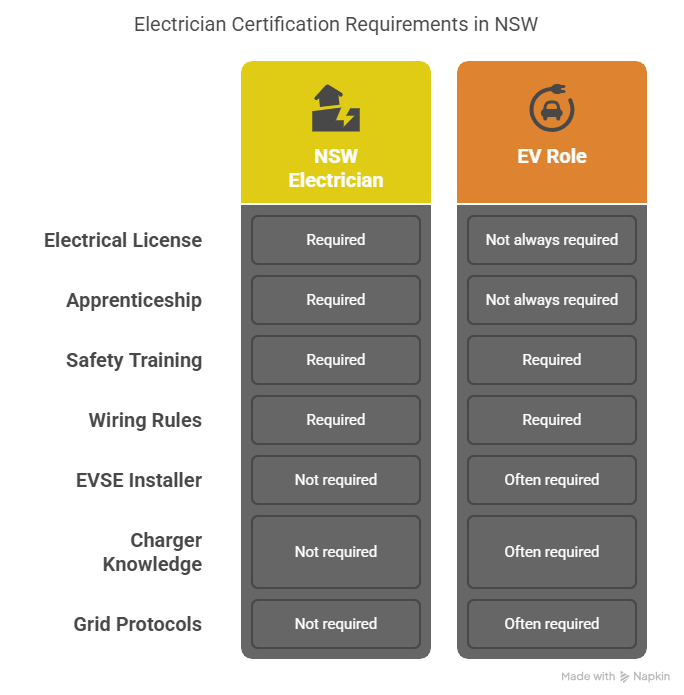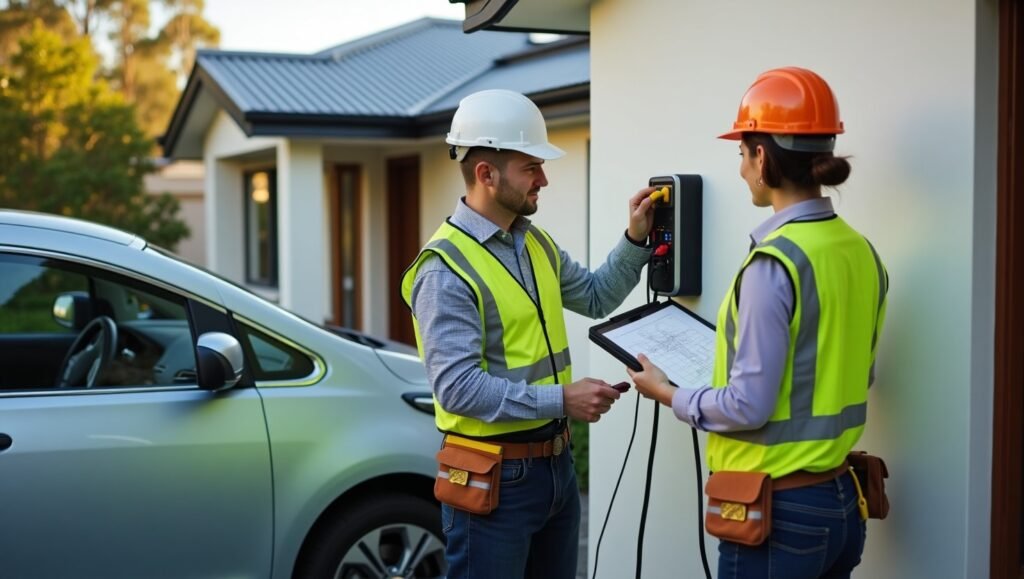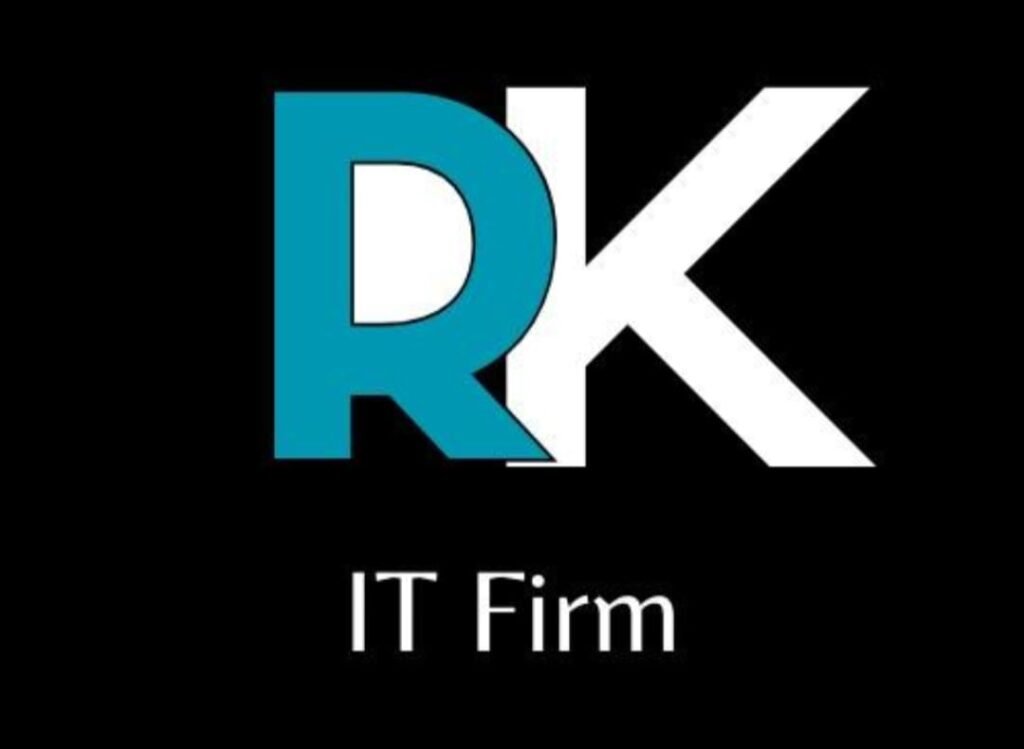Sydney’s fast-growing infrastructure, rise in electric vehicles (EVs), and investment in smart energy solutions have sparked consistent demand for Electrician jobs in Sydney NSW. Whether you’re a licensed tradesperson or a trainee just beginning your career, Sydney offers a wide range of opportunities within the electrical industry. The strong demand for electrician jobs in Sydney NSW spans residential construction, commercial developments, and the fast-growing green energy sector.
As technology evolves, electricians who continue upgrading their skills in energy-efficient systems, smart home installations, and solar integration are well-positioned for long-term success. With consistent demand across both urban and regional areas, electrician jobs in Sydney NSW provide a reliable and future-focused career path for individuals at all experience levels.
Key Highlights for Job Seekers in Sydney NSW:
- High demand for EV charger installation and smart home projects
- Government rebates may apply to certain electrical upgrades
- Certification and licensing crucial for compliance and employability
- Training pathways available for entry-level and experienced electricians
- Work opportunities across construction, automation, and renewable
Current Outlook for Electrician Jobs in Sydney NSW
The outlook for electrician jobs in Sydney NSW remains highly promising, supported by continuous housing developments, commercial growth, and the city’s increasing shift toward renewable and smart energy solutions. As Sydney expands, new residential estates, high-rise apartments, and business hubs are driving consistent demand for licensed electricians who can manage complex electrical installations and maintenance work. These emerging technologies require skilled and licensed tradespeople, ensuring that electrician jobs in Sydney NSW continue to offer stability, strong career growth, and long-term employment prospects for qualified professionals across the region.
What Is Driving Demand in 2025?
Several key trends are boosting demand for electrician jobs in Sydney NSW:
- Growing need to install EV chargers across homes and public facilities
- Increase in solar panel setups and battery storage solutions
- Upgrade requirements to meet new electricity infrastructure Australia standards
- Retrofits and home automation in older Sydney suburbs
- Ongoing trade worker shortages in NSW, particularly in metro zones
This boom is aligned with Australia’s renewable energy targets, where electrician jobs in Sydney NSW are now at the core of the green energy transition.
Entry Paths and Training for New Electricians
For those looking to build a career in electrician jobs in Sydney NSW, the most common and reliable pathway begins with completing a Certificate III in Electrotechnology. This nationally recognised qualification provides the foundational knowledge and technical skills needed to work safely and effectively in various electrical environments. After completing the coursework, aspiring electricians typically enter a four-year apprenticeship, where they gain valuable on-the-job training under the supervision of licensed professionals. Once the apprenticeship is completed, individuals can apply for their official electrical licence through the relevant NSW regulatory authority. Earning this licence opens doors to a wide range of opportunities across construction, maintenance, renewable energy, and automation sectors. With consistent demand and strong earning potential, electrician jobs in Sydney NSW offer a stable and future-focused career for motivated individuals willing to invest in their training.
What Are the Key Certifications Required?
To legally perform electrician jobs in Sydney NSW, you must have:
- A NSW Electrical Licence
- Completed a recognised apprenticeship
- Certification in Working at Heights, CPR/LVR, and White Card
Understanding of the Australian Wiring Rules and relevant safety codes

For EV-specific electrician jobs in Sydney NSW, candidates often complete extra training like:
- EVSE installer programs
- Level 2 charger installation courses
Grid connection training for solar/EV hybrid systems
Specialisations Growing in Sydney’s Electrical Sector
The market for electrician jobs in Sydney NSW is becoming increasingly specialised. Tradespeople can focus on:
- EV home charging installations
- Solar panel and battery storage projects
- High-efficiency switchboard upgrades
- Project management roles within major infrastructure projects
- Predictive maintenance and smart diagnostics in automated buildings
Professionals pursuing electrician jobs in Sydney NSW with skills in PLCs and smart tech integration will see the strongest demand over the next five years.
Major Infrastructure Projects Boost Electrician Jobs in Sydney NSW
The demand for electrician jobs in Sydney NSW is also being fuelled by major infrastructure projects across the metropolitan and regional areas. Government investments in transportation networks, healthcare facilities, and educational institutions are creating a steady flow of electrical work that requires skilled and licensed professionals. Electricians are increasingly involved in large-scale construction, public lighting upgrades, and the installation of advanced energy monitoring systems. These projects not only enhance Sydney’s infrastructure but also provide long-term employment opportunities for electricians who specialise in industrial and commercial systems.
Sustainability and Renewable Energy Drive Electrician Jobs in Sydney NSW
A major factor contributing to the rise in electrician jobs in Sydney NSW is the growing emphasis on sustainability and energy efficiency. Many households and businesses aim to reduce their carbon footprint, creating high demand for electricians skilled in solar panel installations, battery storage systems, and energy audits. The government’s renewable energy initiatives have increased job opportunities in this space, encouraging electricians to upskill in green technologies.
Diverse Career Paths Available in Electrician Jobs in Sydney NSW
The diversity of electrician jobs in Sydney NSW allows tradespeople to choose from a wide range of career paths based on their interests and qualifications. Residential electricians focus on home wiring, lighting design, and appliance installation, while commercial and industrial electricians handle complex systems in factories, office buildings, and construction sites. This variety ensures electricians can build careers that align with their technical skills and long-term professional goals.
Strong Salary Growth and Job Security in Electrician Jobs in Sydney NSW
In addition to career diversity, electrician jobs in Sydney NSW also offer excellent earning potential and job security. Licensed electricians typically enjoy competitive salaries, with additional income opportunities through overtime, specialised certifications, or private contracting work. The ongoing demand for qualified professionals means that job stability remains strong even during periods of economic uncertainty. As Sydney continues to modernise its infrastructure and embrace smart energy solutions, electricians can look forward to sustained growth, professional recognition, and a rewarding long-term career in one of Australia’s most essential trades.
Salary Expectations and Contractor Rates in Sydney
For those exploring electrician jobs in Sydney NSW, average salaries vary by role and experience:
| Job Title | Average Annual Salary |
| Apprentice Electrician | $35,000 – $55,000 |
| Licensed Residential Electrician | $75,000 – $90,000 |
| Commercial/Industrial Electrician | $90,000 – $110,000 |
| Solar Electrician | $95,000+ |
| EV Installation Specialist | $100,000+ |
Contractors working in electrician jobs in Sydney NSW typically charge $80 to $130 per hour depending on job complexity and whether emergency or high-voltage work is involved.
EV Charger Installation in Sydney Homes
EV uptake has surged, increasing demand for electrician jobs in Sydney NSW related to charger installation. These jobs require technical know-how and proper licensing.
What Are the Steps for EV Charger Installation?
- Site inspection and power capacity assessment
- Selection of appropriate EVSE equipment
- Safe and compliant installation
- Submission of paperwork for rebates and incentives
What Incentives Are Available?
Professionals working in electrician jobs in Sydney NSW can significantly enhance their value by understanding how to guide clients through government and energy provider rebate programs. By explaining eligibility requirements, cost-saving benefits, and application processes, electricians can help clients make informed decisions while positioning themselves as trusted industry experts. This level of expertise not only builds customer confidence but also provides a competitive advantage when quoting or negotiating EV charger projects. In a growing market focused on sustainability and smart energy solutions, staying informed about rebate incentives allows electricians to deliver greater value and attract more business opportunities. As a result, professionals engaged in electrician jobs in Sydney NSW can expand their client base.
Job Search and Recruitment Avenues
Finding electrician jobs in Sydney NSW is easier through established recruitment pathways:
- Job boards like Seek, Indeed, and electrical-specific portals
- Membership in NECA or ETU
- Contractor listings with builders and developers
- Referrals and repeat work from satisfied clients
- Collaboration with EV and solar companies
Are There Jobs for International Candidates?
International applicants seeking to work in electrician jobs in Sydney NSW must meet specific licensing and regulatory requirements set by the state authorities. To ensure workplace safety and compliance with Australian standards, overseas-trained electricians are required to apply for Recognition of Prior Learning (RPL) through approved training institutions. This process assesses their existing qualifications and experience against local industry standards. In most cases, international electricians need to complete gap training or short competency courses to bridge any skill differences and qualify for an NSW electrical licence. Once licensed, they can work across residential, commercial, or industrial sectors with full professional recognition. Meeting these requirements not only demonstrates technical competence but also opens access to higher-paying and more stable electrician jobs in Sydney NSW.
Automation and Its Impact on Electrician Roles
Technological progress is reshaping electrician jobs in Sydney NSW. Smart systems now require:
- Integration with home energy monitoring tools
- Installation of automated lighting and HVAC
- Maintenance of grid-connected smart panels
Electricians with digital literacy will find themselves better positioned as automation expands.
Licensing, Compliance, and Safety Guidelines
To legally perform electrician jobs in Sydney NSW, professionals must comply with:
- The Electrical Safety Act 1998
- NSW electrical compliance regulations
- Site-specific PPE and safety standards
- Carrying appropriate public liability insurance
These standards apply across residential, commercial, and healthcare environments – especially in tech-integrated projects like aged care or smart homes.
Technological Advancements Shaping Electrician Jobs in Sydney NSW
The future of electrician jobs in Sydney NSW is increasingly shaped by technological innovation. As buildings become smarter and energy systems more interconnected, electricians are expected to have a solid understanding of digital tools, IoT integration, and automation controls. Smart meters, energy storage devices, and advanced monitoring systems now form a core part of new construction projects across Sydney. This digital transformation means that electricians who invest time in learning about software-controlled systems and energy analytics will remain ahead of the curve. Employers are now looking for professionals who can not only install systems but also configure, troubleshoot, and optimise them for efficiency — creating a new generation of tech-savvy electricians.
Growing Importance of Green Building Standards in Electrician Jobs in Sydney NSW
Sustainability is now a key factor influencing electrician jobs in Sydney NSW. As Sydney’s urban landscape shifts toward eco-friendly construction, electricians play a crucial role in achieving compliance with Green Star and NABERS energy standards. These frameworks require skilled tradespeople who can install efficient lighting, manage renewable energy systems, and ensure proper energy conservation within buildings. Electricians working in these projects must understand both the technical and environmental aspects of modern electrical design. This focus on green building practices is not just a passing trend – it represents a permanent transformation in how Sydney approaches construction and infrastructure development, securing long-term employment for qualified professionals.
Career Progression and Specialisation Opportunities for Electricians in Sydney
As the electrical industry evolves, electrician jobs in Sydney NSW now offer multiple career progression pathways. After gaining experience as a licensed electrician, professionals can move into supervisory roles, project management, safety compliance, or even start their own contracting businesses. Others choose to specialise in emerging fields like renewable energy, electrical engineering design, or smart automation systems. These expanded career options demonstrate that Sydney’s electrical sector provides not just employment but also continuous growth and entrepreneurial potential for motivated individuals.
Job Trends, Gender Inclusion, and Future Demand
Sydney has seen an increase in diversity initiatives, including efforts to increase female electricians in Melbourne and Sydney. Programs now offer mentorships, safety training, and transition pathways for newcomers.
Additionally, growing investments in infrastructure have led to new opportunities such as:
- Electrician jobs on NDIS-related smart home installs
- Work in aged care homes using automation
- Part-time electrician jobs for students or apprentices
As clean energy adoption and infrastructure projects grow, the volume of electrician jobs in Sydney NSW is expected to rise steadily over the next decade.
Final Thoughts
The future of electrician jobs in Sydney NSW is not just in wiring or routine repairs but in powering the smart cities and electric mobility networks of tomorrow. Professionals who are certified, adaptable, and forward-thinking will thrive in an industry shaped by EV charging, solar energy, and building automation.
Whether you’re exploring new opportunities or advancing your existing trade, electrician jobs in NSW offer a stable and evolving career path in one of Australia’s most dynamic markets.
FAQs
How do I become an electrician in Sydney ?
Start with a Certificate III in Electrotechnology, complete your apprenticeship, and obtain your NSW electrical licence.
What is the average salary for electricians in Sydney?
Electrician jobs in Sydney typically pay between $75,000 and $110,000, with higher pay in EV and solar sectors.
Is a licensed electrician required to install a home EV charger?
Yes, only licensed professionals can legally perform these installations in NSW.
Are there rebates for installing EV chargers?
Yes. Several incentive programs are available to reduce installation costs for homeowners. Your electrician should assist in claiming them.





One Response